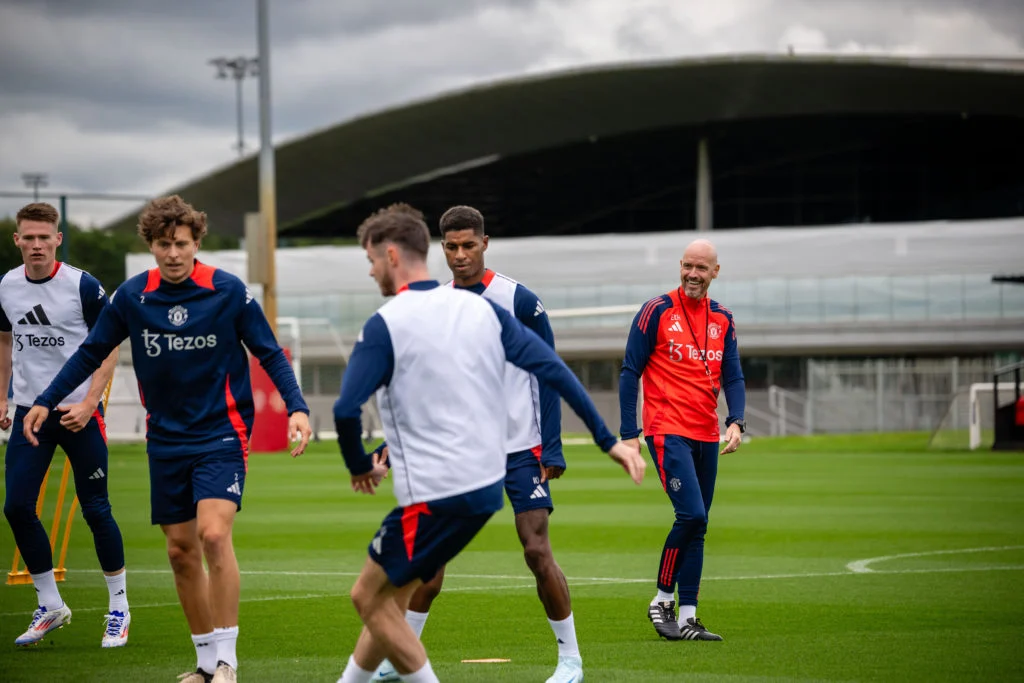Erik ten Hag’s tenure at Manchester United has been marked by a blend of highs and lows, with several disputes capturing the attention of fans and media alike. One notable controversy involved his handling of star player Cristiano Ronaldo. Ten Hag’s decision to bench Ronaldo for key matches, citing tactical reasons and the need to manage the player’s workload, led to tensions. Ronaldo’s public displays of frustration, including walking off the pitch before the final whistle in a match against Tottenham, highlighted the strained relationship between the player and manager. The situation eventually culminated in Ronaldo’s departure from the club, a move that divided opinion among fans and pundits.
Another significant dispute centered around ten Hag’s strict disciplinary approach. Known for his meticulous attention to detail and high standards, ten Hag implemented a set of strict rules and expectations for the squad. This approach, while intended to instill discipline and professionalism, reportedly led to friction with some players who felt the regime was too rigid. Instances of players being fined for minor infractions, such as arriving late to team meetings, created an atmosphere of tension within the dressing room. Some players appreciated the clarity and structure, while others found it stifling, leading to a divided locker room.
Ten Hag’s tactical decisions have also been a source of debate. His preference for a high-pressing, possession-based style of play required significant adaptation from a squad used to different tactical setups under previous managers. The initial struggle to adapt resulted in inconsistent performances and underwhelming results in key matches. Critics argued that ten Hag was too rigid in his tactical approach, failing to adjust his strategies to suit the strengths of his players. Supporters, however, believed that given time, his methods would bring long-term success, pointing to his previous achievements at Ajax as evidence of his tactical acumen.
Player transfers have been another contentious issue during ten Hag’s reign. The manager’s desire to bring in specific players who fit his tactical vision often clashed with the club’s transfer policy and financial constraints. Notable transfer targets either failed to materialize or took longer than expected to secure, leading to frustration. The drawn-out negotiations for players like Frenkie de Jong and the club’s inability to offload unwanted players exacerbated the situation. Ten Hag’s public comments about the need for better squad depth and quality transfers added pressure on the club’s hierarchy to deliver results in the transfer market.
The relationship between ten Hag and the club’s management has also been scrutinized. Reports of disagreements over transfer budgets, player signings, and overall club strategy have surfaced. Ten Hag’s insistence on having a significant say in transfer decisions sometimes clashed with the club’s executive team, leading to tension. Despite these challenges, both parties have publicly maintained a united front, emphasizing their shared commitment to the club’s long-term success. However, behind the scenes, the power dynamics and decision-making processes remain a topic of speculation.
Despite these disputes, ten Hag has managed to secure some positive results, including a notable improvement in the team’s overall performance and morale. His ability to navigate these controversies and maintain a level of professionalism has earned him respect among a section of the fanbase. As Manchester United continues to rebuild and strive for success, the resolution of these disputes and the manager’s ability to foster unity within the squad and the club’s hierarchy will be crucial. Ten Hag’s journey at Manchester United is a testament to the challenges and complexities of managing a top football club, where every decision is scrutinized, and every dispute has the potential to shape the future of the team.
